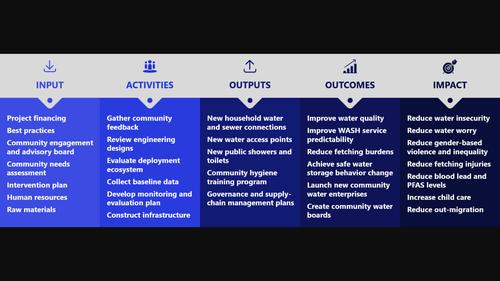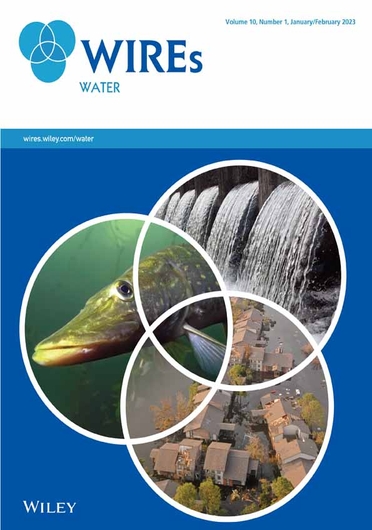衡量变革性讲卫生运动:评估水、环境卫生和个人卫生干预措施的新范例
IF 5.8
1区 地球科学
Q1 ENVIRONMENTAL SCIENCES
引用次数: 3
摘要
实现可持续发展目标6(人人享有清洁水和卫生设施)的进展落后于计划,并面临巨大的财政挑战。严格的水、环境卫生和个人卫生(WASH)干预措施表现不佳,使人们对其有效性产生怀疑,并可能削弱人们对WASH筹资和投资的信心。但这些干预措施依赖于一组狭窄的WASH指标——线性增长和腹泻——这反映了20世纪将微生物水质作为WASH干预成功的最重要衡量标准的优先考虑。即使水在微生物上是安全的,仍有数亿人在取用或饮用家庭用水时面临骚扰、攻击、伤害、中毒、焦虑、疲惫、抑郁、社会排斥、歧视、征服、饥饿、债务或工作、学校或家庭护理缺课。衡量讲卫生行动成功与否的措施应纳入这些影响,以加强讲卫生行动的价值主张。我们提出了实施监测和评估模式转变的前进方向,有助于实现变革性的讲卫生运动。本文章由计算机程序翻译,如有差异,请以英文原文为准。

Measuring transformative WASH: A new paradigm for evaluating water, sanitation, and hygiene interventions
Progress toward achieving Sustainable Development Goal 6, clean water and sanitation for all, is behind schedule and faces substantial financial challenges. Rigorous water, sanitation, and hygiene (WASH) interventions have underperformed, casting doubt on their efficacy and potentially undermining confidence in WASH funding and investments. But these interventions have leaned on a narrow set of WASH indicators—linear growth and diarrhea—that reflect a 20th‐century prioritization of microbiological water quality as the most important measurement of WASH intervention success. Even when water is microbiologically safe, hundreds of millions of people face harassment, assault, injury, poisoning, anxiety, exhaustion, depression, social exclusion, discrimination, subjugation, hunger, debt, or work, school, or family care absenteeism when retrieving or consuming household water. Measures of WASH intervention success should incorporate these impacts to reinforce the WASH value proposition. We present a way forward for implementing a monitoring and evaluation paradigm shift that can help achieve transformative WASH.
求助全文
通过发布文献求助,成功后即可免费获取论文全文。
去求助
来源期刊

Wiley Interdisciplinary Reviews: Water
Environmental Science-Ecology
CiteScore
16.60
自引率
3.70%
发文量
56
期刊介绍:
The WIREs series is truly unique, blending the best aspects of encyclopedic reference works and review journals into a dynamic online format. These remarkable resources foster a research culture that transcends disciplinary boundaries, all while upholding the utmost scientific and presentation excellence. However, they go beyond traditional publications and are, in essence, ever-evolving databases of the latest cutting-edge reviews.
 求助内容:
求助内容: 应助结果提醒方式:
应助结果提醒方式:


